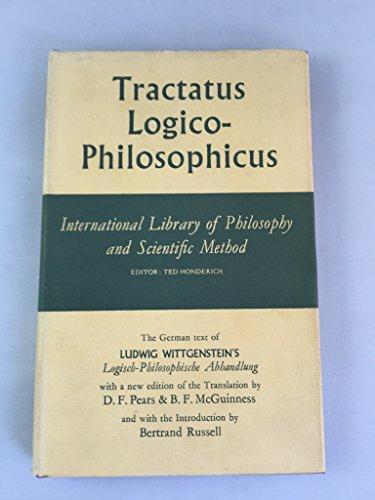Review of 'Tractatus Logico-Philosophicus' on 'Goodreads'
3 stars
"Mathematics is a method of logic."
I had trouble understanding his references involving Frege and Russell, because I haven't read them yet. Even so, I think I followed the gist of his ideas. Interesting points about solipsism.
At first I thought I could use observations from this book to write some interesting inferencing software, but then Wittgenstein went the other direction and said that I couldn't describe logical rules like that... I have a feeling Frege and Russell will set me free, despite his criticism of Frege's "Theory of meaning of propositions and functions."
"Mathematics is a method of logic."
I had trouble understanding his references involving Frege and Russell, because I haven't read them yet. Even so, I think I followed the gist of his ideas. Interesting points about solipsism.
At first I thought I could use observations from this book to write some interesting inferencing software, but then Wittgenstein went the other direction and said that I couldn't describe logical rules like that... I have a feeling Frege and Russell will set me free, despite his criticism of Frege's "Theory of meaning of propositions and functions."

